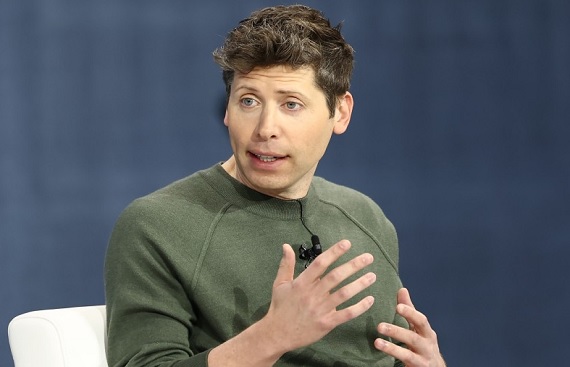India Positioned to Lead in AI Innovation: Sam Altman
By
siliconindia | Wednesday, 05 February 2025, 02:44 Hrs

India is on the cusp of becoming a global leader in artificial intelligence (AI), according to OpenAI Co-founder and CEO Sam Altman. Speaking at an event attended by Union Minister for Railways and Electronics & IT, Ashwini Vaishnaw, Altman highlighted the significance of India as a crucial AI market, emphasizing that it is OpenAI’s second-largest market globally.
Altman, who recently announced a very ambitious $500 billion project called 'Stargate,' aimed at building new AI infrastructure in the U.S., underlined that India has the potential to lead the charge in AI development. In a conversation on the availability of AI models, Altman pointed out that even though current models are extremely expensive, India should take a leadership role in the advancement of AI. He also clarified a previous statement regarding India's capability in the construction of massive language models, mentioning that his words were 'taken out of context'.
Minister Vaishnaw echoed the sentiments further. He expressed confidence in India's capability in a potential lead role in the AI space. He pointed out the nation's history of innovations, such as the Chandrayaan mission, and the questions set before everyone-'Why can't India do the same in the LLM space?' Vaishnaw also shared exciting news about India's plans to launch an indigenous AI model in the coming months.
This AI model, hopefully both affordable and secure, is expected to cater not only to domestic needs but also make India a go-to place for ethical AI solutions in this world.
The IndiaAI mission, with an ultra-modern computing facility at its back, is working on several foundational AI models tailored to the Indian context, including support for Indian languages. This project is moving ahead very fast. The AI model is expected to be ready within six months. The facility now boasts 10,000 GPUs. It will be expanded further with 8,693 additional GPUs to make its computational powers stronger. The AI model, sourced from India, will be a fraction as expensive as all these global models because the government will be subsidizing 40% of the costs for these models. Global AI models are charged about $2.5 to $3 an hour, and this AI model will be available at under Rs 100 an hour. This positioning will enable the democratization of AI access for students, researchers, and developers.
The initiative would fill the gap in AI development and make India a more reliable and innovative force in the global tech landscape.
In a world where AI is increasingly shaping the future, the effort of developing affordable, ethical, and localized AI solutions from India signals a new chapter in the country's technological journey.
